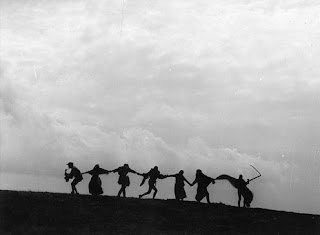At least as far as I can tell. I've been researching marketing copy this weekend and drafting writing examples I can use in job applications. My marketing skills are a little rusty, but after reading other people's portfolios on-line, I'm feeling confident that I could do at least as well as most professionals, if not better.
Some of the advice pages I've found about writing marketing copy have been fantastic; I found GNC's suggestions and DT&GBusiness's tips to be particularly helpful. These sites made me wish that I had taught a web-based persuasive writing assignment in my composition courses. Not only would it have been tremendously helpful to the students' general writing skills, but it would have forced my students to practice practical rhetoric, something that even I'm not used to doing.
Anyway, I've posted my marketing copy example below. I made up a business (Claire's Cakes and Candies), brainstormed some services they might have, and tried to explain these services to a potential consumer. I image that this copy would be used for the bakery's home page as an introduction to their basic services.
I tried to directly relate each service to a specific need or desire that the consumer has, like the need for convenience or the desire to impress his or her guests. I'm especially fond of my slant-rhymed tag-line: "Creative Designs for the Event of a Lifetime!"
---------------
Claire's Cakes and Candies
Custom Cakes for Weddings and Special Events: We don't just make cakes, we make impressions. Let our staff of master bakers and designers shape a sophisticated, one-of-a-kind cake just for you. With our wide selection of gourmet flavors, we can ensure that your cake will be as delicious as well as spectacular. We're expert at suiting any style, any occasion, and any palate. So let us take care of your cake so you can enjoy your event! Schedule a design consultation and taste test with us today.
Same-day Sheet Cakes: Forgot to order a cake for a co-worker? Missed Mom's birthday? Call us on your way to work and we'll have your custom sheet cake ready by the afternoon. With a personalized message and colorful butter cream detailing, we can make any of our fresh pre-made sheet cakes (available in white and chocolate) into something special just for you. Never miss another opportunity to show that you care!
Cupcakes: Perfect for on-the-go hostesses and spur-of-the-moment celebrations, our cupcakes (available in white, chocolate, and carrot cake) can turn any day into an event. We whip up our no-fuss, all-fun cupcakes by the dozen. And since we they're made fresh daily, these mini cakes will let you display your party panache at a moment's notice!
Fine Gift Chocolates: From kids to connoisseurs, everyone loves our hand-crafted chocolate gifts, which we make using only the finest ingredients from Belgium and France. Our artisan molds transform our deluxe milk and dark chocolates into dramatic gifts for your special someone. Playful or polished, silly or sophisticated, Claire's chocolates make a sweet statement for any occasion.

















